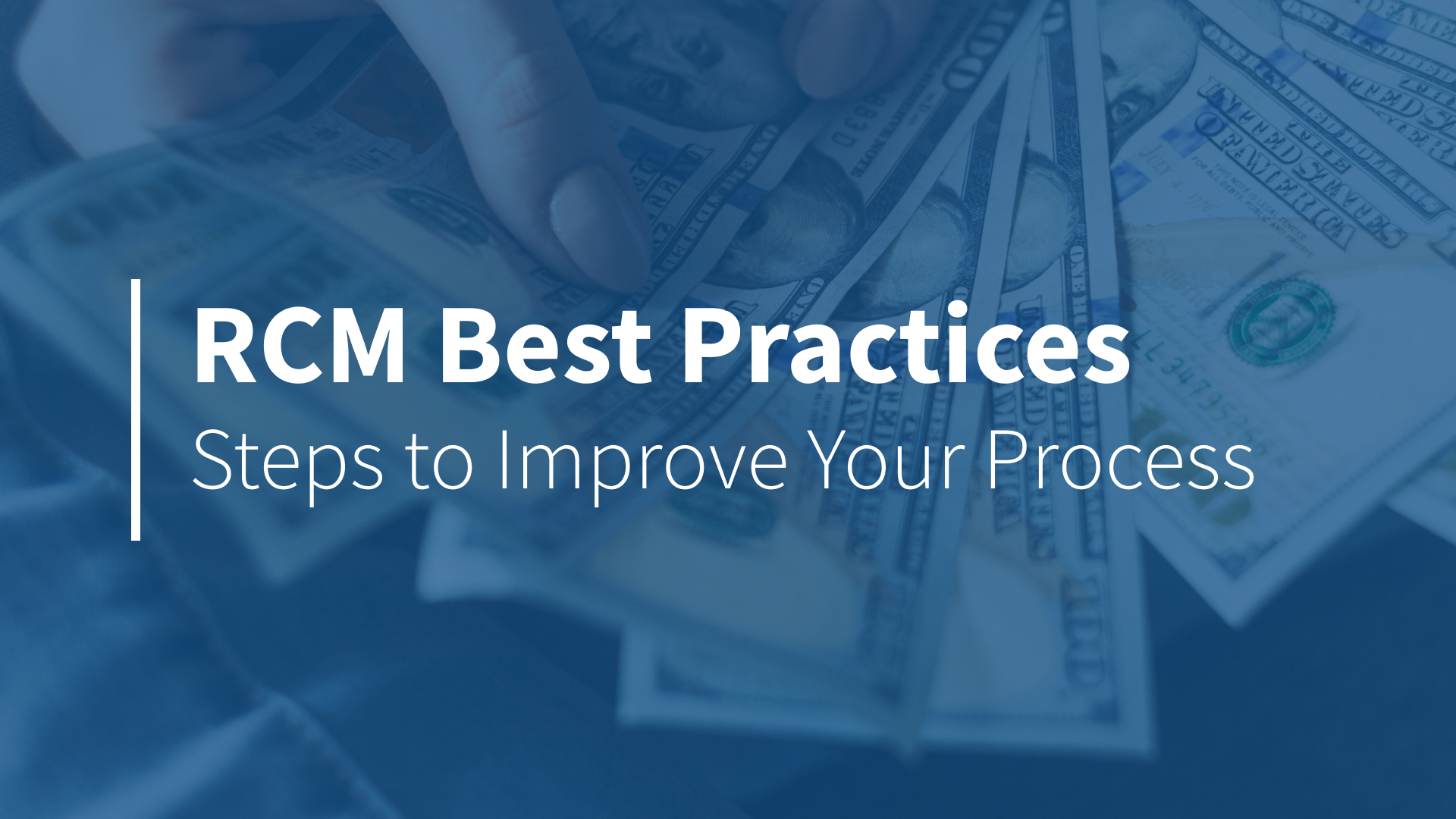How to Apply for a Medical Grant
Step-By-Step Guide for Rural Clinics
Running a rural health clinic or hospital comes with unique challenges, from limited budgets to staffing shortages and access to advanced medical equipment. However, securing medical grants can be a game-changer. These grants provide much-needed funding for expanding services, improving operational efficiency, and delivering better healthcare to underserved communities.
This guide will help you understand the types of grants available, the application process, and the steps needed to maximize their chances of success. Whether you’re a first-time applicant or an experienced grant seeker, this blog will ensure you’re well-prepared to secure financial support.
What Are Medical Grants and Why Are They Crucial for Rural Healthcare?
Medical grants are funds provided by federal programs, organizations, or private entities to support healthcare initiatives. Unlike loans, grants don’t require repayment, making them an ideal source of funding for rural health clinics and hospitals.
For rural healthcare providers, medical grants directly address critical issues, such as acquiring new equipment, supporting telehealth implementation, or retaining qualified staff. Programs like the National Institutes of Health (NIH) or the Rural Health Information Hub offer funding solutions to bridge resource gaps and improve access to care.
Types of Grants Available for Rural Healthcare Providers
Several grant programs are designed specifically to support rural health clinics and hospitals in improving healthcare services, expanding access, and ensuring financial sustainability. These are just a few examples of the many grants available:
Medicare Rural Hospital Flexibility (Flex) Program
The Flex Program is tailored for Critical Access Hospitals (CAHs) and focuses on improving operational efficiency, financial viability, and healthcare quality. This program provides funding for services such as emergency medical care and ensures the delivery of quality healthcare to rural communities. States customize the program to meet local needs.
Eligibility Requirements:
- Must be a designated Critical Access Hospital (CAH).
- Applicants must demonstrate a commitment to improving healthcare services and financial sustainability.
Application Deadlines:
- Deadlines vary by state, as each state administers the program based on local needs. Be sure to check with your state’s healthcare department for specific dates.
MultiPlan Rural Health Grant
This grant supports rural healthcare providers in expanding services, offering health screenings, and providing community health education. With application deadlines typically in December, the grant can assist clinics in launching or expanding critical programs that improve the health and well-being of rural populations.
Eligibility Requirements:
- Must be a healthcare provider in a rural area, including clinics and hospitals.
- The grant is generally open to both for-profit and non-profit organizations focused on rural healthcare improvement.
Application Deadlines:
- Applications are typically due in December each year. For the most up-to-date deadlines, it’s important to check the MultiPlan website or contact the program directly.
Rural Economic Development Loan and Grant (REDLG) Program
Administered by the USDA, the REDLG program offers loans and grants to support economic development projects, including healthcare facility improvements, telecommunication infrastructure, and essential healthcare equipment for rural areas.
Eligibility Requirements:
- Applicants must be located in a rural area as defined by the USDA.
- The program is open to healthcare providers, local governments, non-profit organizations, and other entities that aim to improve rural health infrastructure.
Application Deadlines:
- Deadlines for the REDLG program typically occur on a rolling basis. It’s advisable to apply early, as funding is competitive. Check the USDA website for specific deadlines and application details.
Federal Communications Commission (FCC) Healthcare Connect Fund
The FCC Healthcare Connect Fund helps reduce broadband costs by 65% for rural healthcare providers. This makes it more feasible for healthcare facilities to implement telemedicine and other digital health solutions, significantly improving access to care for rural populations.
Eligibility Requirements:
- The program is available to healthcare providers in rural areas who need to improve or expand broadband services.
- Eligible healthcare providers include rural clinics, hospitals, and other healthcare institutions that provide medical care to underserved populations.
Application Deadlines:
- Applications for the Healthcare Connect Fund are accepted annually. The deadline typically falls in early Spring, but it is essential to visit the FCC’s official site to confirm the exact dates.
How to Apply for Rural Health Grants
The grant application process may seem daunting, but breaking it down into manageable steps can help you navigate it effectively. Here’s an overview of the steps involved:
1. Identify the Right Grant Program
Start by assessing your facility’s needs and identifying grants that align with your goals. Trusted resources like Grants.gov, the Rural Health Information Hub, and the Health Resources and Services Administration (HRSA) provide comprehensive lists of available grants.
Example Questions to Consider:
- Are you looking for funding to expand telemedicine?
- Do you need support for new equipment?
- Are you aiming to improve community health programs?
2. Complete Necessary Registrations
To apply for federal grants, you’ll need to complete a few registrations:
- NIH eRA Commons: For NIH-related grants, you’ll need an eRA Commons account to track and manage your application.
- Grants.gov: Register on this portal, which is the primary submission platform for federal grant applications. Be sure to start the registration process early, as it may take several weeks to complete.
- System for Award Management (SAM): This free registration is required for receiving federal funding (complete it here). Renewal is required annually.
3. Prepare Your Proposal
Grant proposals typically require the following components:
- Project Narrative: Explain your clinic’s challenges, how the grant will help, and the expected impact on healthcare access or outcomes.
- Budget Justification: Provide a detailed breakdown of expenses. Ensure your request reflects realistic and essential costs.
- Supporting Documents: Include licenses, staffing plans, and relevant certifications.
Write clearly and emphasize alignment with the grant’s objectives to stand out. Many agencies provide templates for proposals, which can be incredibly useful.
4. Submit the Application on Time
Applications are generally submitted through Grants.gov. Once submitted, you can track the status of your application. Pay close attention to the deadlines, as they vary by program and are strictly enforced.
5. Comply with Post-Award Requirements
Once awarded, you must comply with reporting and monitoring obligations, such as:
- Financial Reporting: Submit regular financial status reports to track spending.
- Performance Updates: Demonstrate how grant objectives are being met with measurable outcomes.
Maintaining transparency in post-award compliance ensures your eligibility for future funding opportunities.
Legal Obligations When Receiving Grant Funding
Organizations receiving federal grants must adhere to specific legal obligations, including filing regular financial status reports. All grant recipients, including community and faith-based groups, are subject to audits. These audits focus on federally funded activities and are designed to ensure that funds are used for their intended purpose.
Resources for Navigating the Grant Process
Need help with your application? These resources can streamline your process:
- Professional Grant Writers: Consider hiring experts to develop a compelling proposal.
- Regional Health Departments: Many local agencies provide guidance tailored for rural healthcare providers.
- Public Health Programs: Universities often offer consultation or collaboration opportunities.
- Grants.gov & Rural Health Information Hub: Bookmark these platforms for comprehensive grant listings and advice.
![]() Want more like this?
Sign up to receive our emails and never miss an update! →
Want more like this?
Sign up to receive our emails and never miss an update! →
Want more like this?
Get our emails and never miss an update! →
Empower Your Rural Health Clinic Through Grants
Medical grants are an invaluable tool for rural healthcare providers to secure critical funding, overcome operational challenges, and improve patient outcomes. From reducing costs to expanding services, the benefits of applying for these grants are undeniable.
By following this guide, you’re equipped to:
- Identify the most suitable grants.
- Submit a strong, impactful proposal.
- Stay compliant with post-award requirements.
Take the next step and explore funding opportunities at Grants.gov. With the right knowledge and preparation, your rural clinic can unlock new possibilities for delivering exceptional care to the communities that need it most.
Need help navigating the rural healthcare landscape?
The Definitive Guide to Rural Health is filled with strategies and resources to help your clinic succeed.





